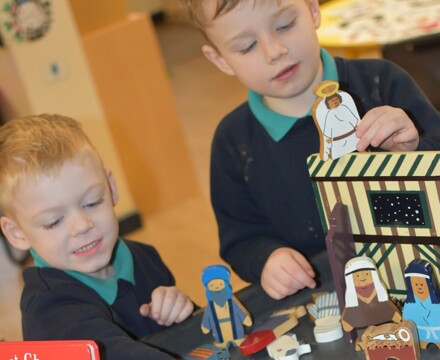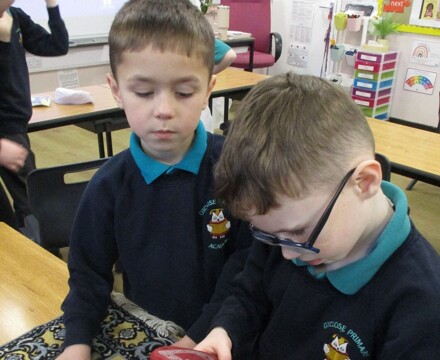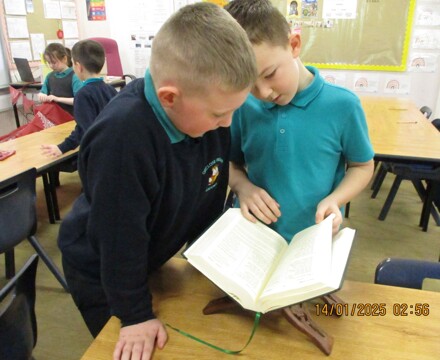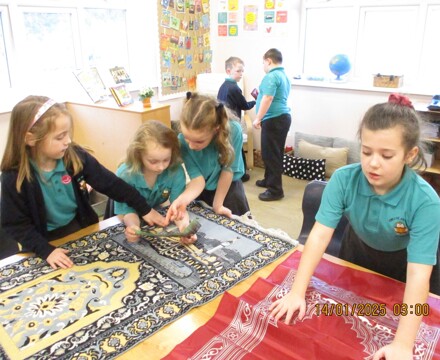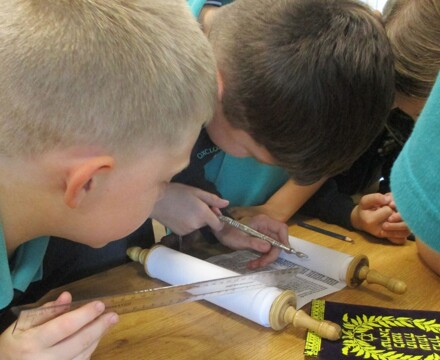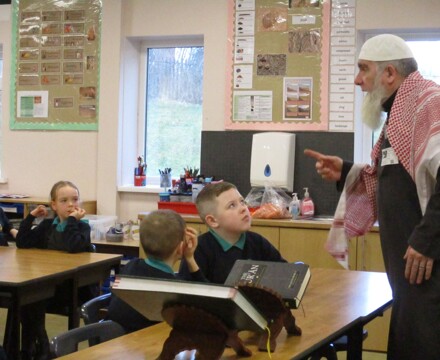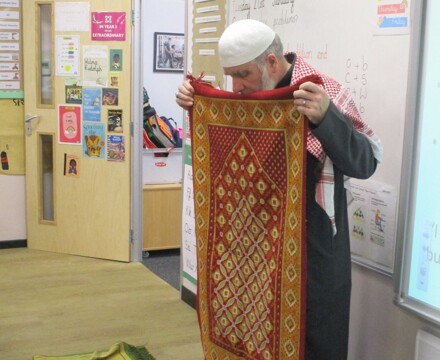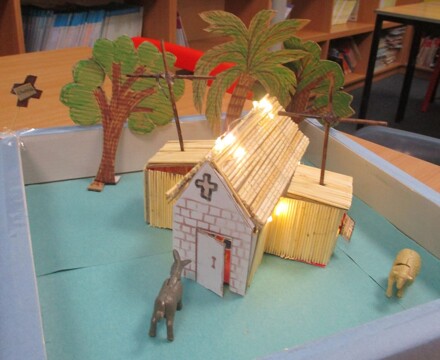- Home
- In the Classroom
- Subject Information
- RE
RE
BackVision and Aims
At Oxclose Primary Academy, the teaching of Religious Education (R.E) is not designed to convert pupils to any one religion or to urge them to hold any particular religious belief. Instead, it plays a pivotal role in contributing to pupil’s spiritual, moral, social and cultural development, supporting their understanding of the world in which they live and helping children develop their own world view. At our school children develop an understanding of the principal religions represented in the UK; Christianity, Islam, Hinduism and Judaism and in addition to this they are taught about non-religious world views like Humanism. We are committed to teaching religious and non-religious worldviews accurately and fairly representing their beliefs, values, and practices. Our vision is that all children have access to inspiring RE lessons that prepare them for life in a diverse society.
At Oxclose Primary Academy our Religious Education curriculum aims to ensure that all pupils:
- develop an understanding of religious and non-religious worldviews and to accurately and fairly represent their beliefs, values, and practices.
- encourage the children to reflect on their own ideas and ways of living and develop their own world view.
- teach lessons that provoke challenging questions about meaning and purpose in life, beliefs about God, issues of right and wrong and what it means to be human.
- provide a range of experiences through exciting visits and visitors.
Sequencing Rationale
Our curriculum covers 4 key themes - Creation, Incarnation, Salvation and God - Judaism. Please see the Key Themes document below for more detail.
Extraordinary Opportunities
- 11 by 11 Y3 visit to Durham Cathedral (Christianity)
- Washington Wetlands – Generation Wild Project (Humanism)
- Brother Khadim from Newcastle Central Mosque (Islam)
- St John Boste (Local Catholic Church)
- Whole school RE celebration week (Religious focus changes each year)
Intent
At Oxclose Primary Academy, the teaching of Religious Education (R.E) is not designed to convert pupils to any one religion or to urge them to hold any particular religious belief. Instead, it plays a pivotal role in contributing to pupil’s spiritual, moral, social and cultural development, supporting their understanding of the world in which they live and helping children develop their own world view. At our school children develop an understanding of the principle religions represented in the UK; Christianity, Islam, Hinduism and Judaism and in addition to this they are taught about non-religious world views like Humanism.
During their time in our school, we want to give pupils the opportunity to explore what people believe and what difference this makes to how they live, so that pupils can gain the knowledge, understanding and skills needed to handle questions raised by religion and belief, reflecting on their own ideas and ways of living. We want our R.E lessons to provoke challenging questions about meaning and purpose in life, beliefs about God, issues of right and wrong and what it means to be human. Pupils will learn about religions and beliefs in local, national and global contexts to consider different answers to these questions. Our teaching will equip pupils with systematic knowledge of and understanding of a range of religions and beliefs. Enabling them to develop their own ideas and identities, whilst being able to express their insights and agree or disagree respectfully.
We believe it is important for our pupils to visit places of worship and can have visitors of different faiths come into school and speak with them. We want our pupils to have the opportunity to celebrate major festivals throughout the year, whilst also being aware of British Values and traditions.
Implementation
The R.E curriculum is based on the Sunderland Agreed Syllabus, which reflects that the religious traditions in Great Britain are, in the main Christian, whilst taking account of the teachings and practices of other world religions represented in Great Britain today. The long-term plan for R.E details what should be studied in each year group. In EYFS children will encounter Christianity and other faiths, as part of their growing sense of self, their own community and their place within it. In Key Stage 1 children will study Christianity, Judaism and Islam and in Key Stage 2 the children will build on their knowledge and understanding of the faiths mentioned previously and also study Hinduism. Consideration of other religious and non-religious worldviews will be included during thematic study such as “How and why do people mark the significant events of life?” and “How and why do people try and make the world a better place?”
The syllabus is based around a key question approach. The questions are designed to support staff in delivering high-quality teaching that enables coherence and progression.
To further support pupils’ understanding of the traditions of Christianity, World Views and British Values, all classes take part in a daily act of worship, either in their class base or as part of a whole school assembly. The school hosts Christmas and Easter celebrations each year for parents and carers to attend. To promote religious diversity, every year, a different religious festival, such as Hanukah, Ramadan or Diwali, is picked as a focus celebration.
We encourage al children to partake in our RE lessons. If you wish for your child to be withdrawn from all or part of the RE curriculum, please contact the school office
Impact
By the end of each key stage our pupils are expected to know, understand and apply the concepts and skills that have been covered in their lessons and show an understanding of the similarities and differences between those covered religions. The expectation is that pupils’ achievements will be weighed up by teachers using criteria arising from the program of study.
The subject leader and senior leaders will use lesson visits, a works scrutiny and pupil voice activities across the year.
| Subject Documents |
|---|
| RE Long Term Plan |
| Themes RE |
| Example RE Medium Term Plan |
